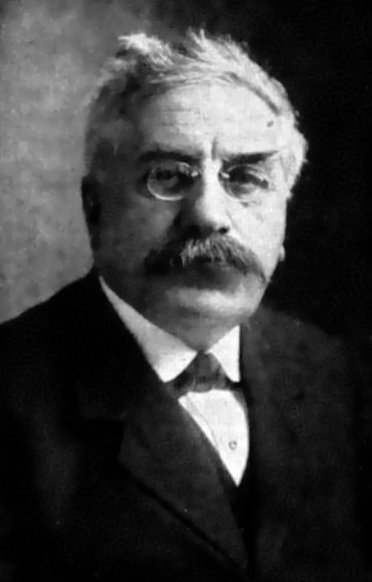- Alexandre Millerand
Infobox President
honorific-prefix =
name = Alexandre Millerand
honorific-suffix =
caption = Millerand circa 1918
order2 = 86thPrime Minister of France
term_start2 = 20 January 1920
term_end2 = 24 September 1920
president2 =Raymond Poincare Paul Deschanel
Himself (acting)
predecessor2 =Georges Clemenceau
successor2 =Georges Leygues
order = 12thPresident of the French Republic
11th President of the Third Republic
term_start = 23 September 1920
term_end = 11 June 1924
Acting President from 21 September
primeminister = HimselfGeorges Leygues Aristide Briand Raymond Poincare Frédéric François-Marsal
predecessor =Paul Deschanel
successor =Gaston Doumergue
order3 = French Co-Prince of Andorra
term_start3 = 23 September 1920
term_end3 = 11 June 1924
Served alongside:Justí Guitart i Vilardebó
predecessor3 =Paul Deschanel
succes sor3 =Gaston Doumergue
birth_date = birth date|1859|2|10|df=yes
death_date = death date and age|1943|4|7|1859|2|10|df=yes
nationality = French
party = Parti Socialiste de FranceAlexandre Millerand (10 February 1859 - 7 April 1943) was a French socialist
politician . He wasPresident of France from 23 September 1920 to 11 June 1924 andPrime Minister of France 20 January to 23 September 1920. His participation inWaldeck-Rousseau 's cabinet at the turn of the century, alongside themarquis de Galliffet who had directed the repression of the 1871Paris Commune , sparked a debate in the French socialist movement and in theSecond International about the participation of socialists in "bourgeois governments".Biography
Early activism
Born in
Paris , he was educated for the Bar, and made his reputation by his defence, in company with Georges Laguerre, ofErnest Roche andDuc-Quercy , the instigators of the strike atDecazeville in 1883; he then took Laguerre's place onGeorges Clemenceau 's paper, "La Justice". He was elected to the Chamber of Deputies for the Seine "département" in 1885 as a Radical Socialist. He was associated with Clemenceau andCamille Pelletan as an arbitrator in theCarmaux strike (1892). He had long had the ear of the Chamber in matters of social legislation, and after thePanama scandal s had discredited so many politicians his influence grew.As member of the executive
He was chief of the Socialist faction (the Parti Socialiste de France in 1899), a group which then mustered sixty members, and edited until 1896 their organ in the press, "La Petite République". His programme included the collective ownership of the
means of production and the international association of labour, but, when in June 1899 he enteredPierre Waldeck-Rousseau 's cabinet of "republican defence" as Minister of Commerce, he limited himself to practical reforms, devoting his attention to the improvement of the mercantile marine, to the development of trade, of technical education, of the postal system, and to the amelioration of the conditions of labour. Labour questions were entrusted to a separate department, the "Direction du Travail", and the pension and insurance office was also raised to the status of a "direction".The introduction of
trade union representatives on the "Supreme Labour Council", the organization of local labour councils, and the instructions to factory inspectors to put themselves in communication with the councils of the trade unions, were valuable concessions to labour, and he further secured the rigorous application of earlier laws devised for the protection of theworking class . His name was especially associated with a project for the establishment of old age pensions, which became law in 1905. In 1898, he became editor of "La Lanterne".His influence with the
far left had already declined, for it was said that his departure from the true Marxist tradition had disintegrated the party. He was expelled from the group in 1903, and continued to move to the right, being appointed Prime Minister by the conservative PresidentPaul Deschanel in 1920.Presidency and later years
When Deschanel had to resign later that year due to his mental disorder, Millerand emerged as a compromise candidate for President between the "Bloc National" and the remnants of the "
Bloc des gauches ". Millerand appointedGeorges Leygues , a politician with a long career of ministerial office, as Prime Minister and attempted to strengthen the executive powers of the Presidency. This move was resisted in the Chamber of Deputies and theFrench Senate , and Millerand was forced to appoint a stronger figure,Aristide Briand . Briand's appointment was welcomed by both left and right, although the Socialists and the left wing of the Radical Party did not join his government. However, Millerand dismissed Briand after just a year, and appointed the conservative republicanRaymond Poincaré .Millerand was accused of favouring conservatives in spite of the traditional neutrality of French Presidents and the composition of the legislature. On 14 July 1922, Millerand escaped an assassination attempt by
Gustave Bouvet , a young French anarchist. Two years later, Millerand resigned in the face of growing conflict between the elected legislature and the office of the President, following the victory of the "Cartel des Gauches ".Gaston Doumergue , who was the president of the Senate at the time, was chosen to replace Millerand.Alexandre Millerand died in 1943 at
Versailles , and was interred in the Passy Cemetery.Millerand's Ministry, 20 January 1920 – 24 September 1920
*Alexandre Millerand - President of the Council and Minister of Foreign Affairs
*André Lefèvre - Minister of War
*Théodore Steeg - Minister of the Interior
*Frédéric François-Marsal - Minister of Finance
*Paul Jourdain - Minister of Labour
*Gustave L'Hopiteau - Minister of Justice
*Adolphe Landry - Minister of Marine
*André Honnorat - Minister of Public Instruction and Fine Arts
*André Maginot - Minister of War Pensions, Grants, and Allowances
*Joseph Ricard - Minister of Agriculture
*Albert Sarraut - Minister of Colonies
*Yves Le Trocquer - Minister of Public Works
*Auguste Isaac - Minister of Commerce and Industry
*Émile Ogier - Minister of Liberated Regions----
Wikimedia Foundation. 2010.
